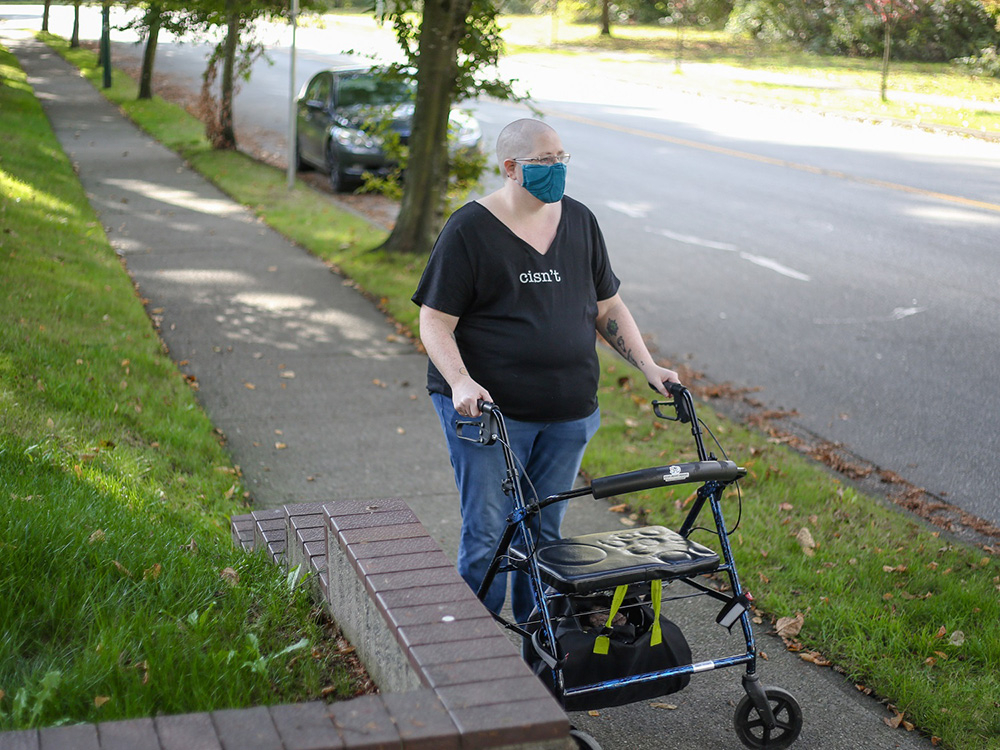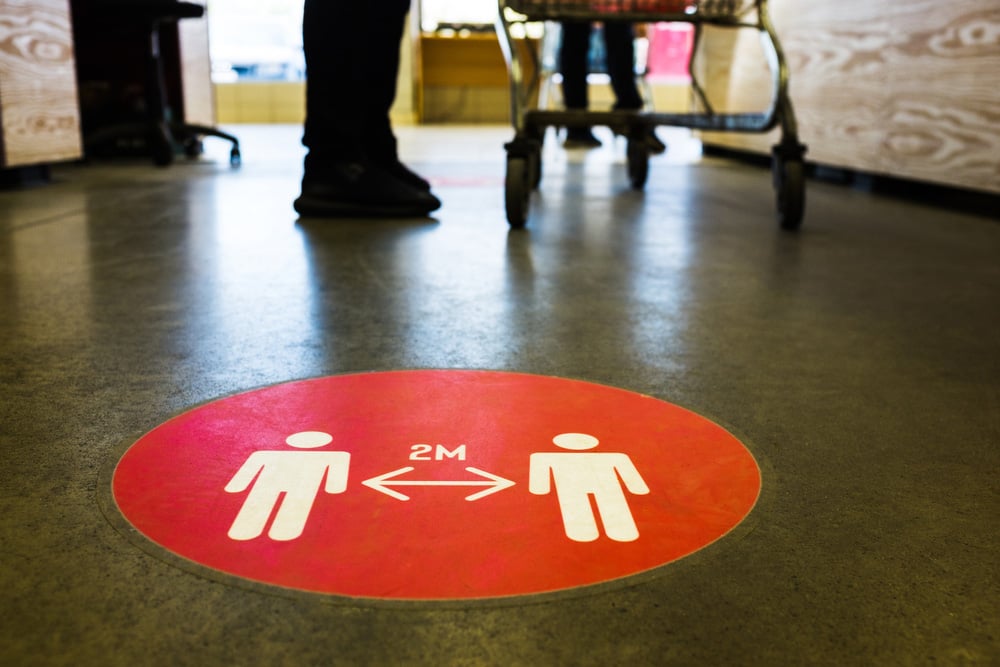For Amy Amantea, who lives with sight loss, the pandemic has made it harder to navigate the grocery store she’s shopped at for 15 years.
Products she usually knows where to find have been moved around. Arrows on the ground to guide customers through the store don’t help her.
“They’re good for everybody else, but it would be nice if they can check in with me if I seem to be confused about the directions,” said Amantea. “The independence I get from navigating a typical place like that the same way I always do has been robbed from me.”
The pandemic has created many new challenges for people with disabilities.
People with sight loss like Amantea have to feel frequently-touched elevator buttons to find the right one. People with chronic pain might have a hard time lining up for long periods. People with mobility challenges might have someone touch them or their device to try and help.
And it’s hard for some to communicate with service workers who are behind plexiglass, or who have their faces covered by a mask.
People with disabilities are already familiar with inaccessibility in many areas of daily life.
But COVID-19 has proven that change for a more accessible world simply takes willingness, say accessibility advocates like Amantea.
For example, many people who had a hard time commuting can now work from home. In-person events can be tuned into online. And cities are tweaking their streets to give people more room to physically distance.
Because of the pandemic, “I can do more meetings, I can do more work, I can go to more events,” said Heather McCain, the executive director of Creating Accessible Neighbourhoods. McCain lives with both visible and invisible disabilities and currently uses a walker.
“Change happens when a mass population is affected by a single incident. I believe we have the opportunity to address the gaps that have become so obvious.”

What’s missing in B.C., McCain believes, is accessibility legislation. But that may finally be on its way.
Shane Simpson, the minister for social development and poverty reduction in the current government, didn’t run in the election. He has said that the goal of the legislation is to move beyond disability awareness and work towards “full inclusion” by setting standards.
The NDP has promised to introduce and pass it in their first post-election legislative session.
Their government did consultation on the bill last fall. The pandemic has since underlined how important it is to ensure that services, employment, communication, transportation and the built environment aren’t exclusionary.
McCain said we need the “teeth” and “encouragement” of legislation, “not just someone with a disability phoning a store and saying, ‘You have a sign in the middle of the sidewalk.’”
Even though the City of Vancouver and some businesses have tried to create more space for people to physically distance, it’s not always accessible, McCain said.
Street patios might require someone with a wheeled mobility device to go down a curb. Roped-off areas where people are expected to line up might not be cane-detectable.
Iris Thompson, who uses a guide dog and is a division director of the Canadian Council of the Blind, stresses the importance of consistency in the built environment.
Accessible public washrooms, for example, are challenging for her to navigate because they are all different.
At the Coquitlam Centre mall, there’s an accessible washroom with buttons to close and lock the door rather than a lock on the door itself.
“I don’t know where the buttons are,” said Thompson. “Not all bathrooms are meant for all disabilities. They can make them accessible for some people, but not for all.”
Pedestrian crossings can be confusing because not all of them have audible signals of when it’s safe to cross. Elevators can be confusing because the new ones have touch screens rather than tactile buttons.
Universal design is a component of the NDP’s coming legislation, which is the design of environments and products to make them more accessible to all people, regardless of age, disability or other factors.
One in five Canadians has a disability, according to Statistics Canada.
This was defined as anyone limited in daily activities due to a long-term condition or health problem, but McCain said that accessible legislation will help many people.
“People hear accessibility, and they think ‘wheelchair,’” McCain said.
“Everyone has a disability at some point in their life, whether it’s temporary, episodic or permanent. The thing about accessibility is that you don’t notice it until you need it. And when you need it, you really need it. That’s why we want people to support us because someday, they’re going to need it, and we want it to be there for them.” ![]()
Read more: Rights + Justice, BC Politics
















Tyee Commenting Guidelines
Comments that violate guidelines risk being deleted, and violations may result in a temporary or permanent user ban. Maintain the spirit of good conversation to stay in the discussion.
*Please note The Tyee is not a forum for spreading misinformation about COVID-19, denying its existence or minimizing its risk to public health.
Do:
Do not: